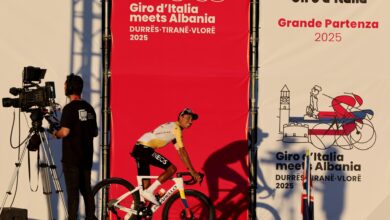Investment as a first step to consolidate women’s soccer
Listen this article
Spain and now Argentina are two examples that, when there is interest and money is in the right hands, sports begin to develop well

'Investment' has always been the key word in the field of sport and more recently in the growth of the female sector in this area. In the specific case of Argentina, the horizon of the professionalization of women's soccer is visible, after Claudio Tapia, president of the Argentine Soccer Association (AFA), made sure as part of the presentation of the Women's Soccer World Cup in Buenos Aires that "the 16 clubs that participate in the First AFA Division will be supported economically, as a clear start of a path that will culminate in professionalism".
Leer en español: La inversión como primer paso para consolidar el fútbol femenino
Some of the advances expressed by Tapia were the eight "professional" contracts to players and that these will be accompanied "in an economic way to the top 16 clubs so that the professionalism and development of women's soccer stay forever", reflected El Ciudadano Web.
Tapia continued "I want to be the president of gender equality in Argentinian soccer" and apparently is well on track with the important investment, which would give him a lot of credibility in Argentinian soccer. With the 24 million Argentinian pesos, the president of the AFA considers that at least the eight professional contracts already mentioned, and a maximum of 11 players per squad will be covered, as Nexofin reflected after collecting information from Doble Amarilla.
Read also: What difficulties does female soccer face around the world?
How will the investment be distributed?
According to El Ciudadano Web, the investment will be around 2 million per month during the year. Thus, each of the 16 participant First Division teams will receive between 120 and 125 thousand monthly for the professionalization of their players.
In addition, Tapia said that it is planned to create a similar competition to the Argentinian Cup, but for women's teams. The event would be something similar to the Federal Cup and the Annual Tournament of Regional Teams. Another project that is on track is that of women's clothing in the property that the AFA has in Ezeiza, where the players of the national senior team are trained.
In relation to the Argentinian women's tournaments of the different federations and associations, he emphasized that the professionalism in these competitions needs time, because "the clubs are going to have to be prepared from the infrastructure so they can continue growing", remarked El Ciudadano Web.
The 120 thousand pesos monthly that will be deposited to each club during a year will have as main objective to be able to fulfill the payment of the salaries of the professionalized players. "We have made a commitment and we will take it forward. There are sponsors of the men's team that are accompanying us," Tapia told MSN.
Projects
The president also mentioned the construction of a high-performance center in Buenos Aires for the development of women's activity and assured that those teams that do not have their own court to play their matches will be able to play them at the AFA facilities. According to this, the support will be maximum.
Sergio Marchi, general secretary of the Argentinian Soccer Players Association (FAA), added that the salary of each soccer player will be equivalent to the basic salary of a player of the First C. "We are generating a legal framework and an order to grow from here, this creates economic rights, for example, it is in each of us to help develop it," said Marchi.
The current Women's First Division League is made up of UAI Urquiza (last champion), Boca, River, San Lorenzo, Racing, Independiente, Hurricane, UBA, Lanús, Platense, Villa San Carlos, Estudiantes de La Plata, Excursionists, El Porvenir, Deportivo Morón and Atlanta, MSN recalled.
Spain's case
According to El País, at the end of a women's Atlético de Madrid match, an amateur named Marta Gómez already identified a difference in relation to the matches she has been attending for seven years. "Before they played there, in the background, in a field with small stands that almost nobody was going to".
Now, some games of the women's league in that country are witnessed by 99 thousand people on television, through the Gol channel. The same citizen said that it feels different to see the Atleti players traveling around Madrid in their own bus as when they celebrated the league title. "I was proud to see them there, as it has to be."
That has an explanation: investment through television rights. Women's soccer grows vertiginously. In fact, between 2002 and 2017, the number of federated players in Spain was multiplied by four.
In 2018, 105 games of the League of Spain were broadcast on television, which generated the phenomenon of 105 thousand spectators on average per game this season, which represented a significant 37% more than the previous one, according to La Liga data. The best example was in the Metropolitan Wanda, where 22,200 people attended the match of Atlético de Madrid vs. Madrid Club de Fútbol.
They have already taken the first step. Social interest was generated and that in turn attracted brands, money and the foundations to set up an industry. Some are already admired by little girls at home and in turn that admiration creates an interest in being soccer players.
The truth is that, according to El País, the history of women's soccer in Spain accelerated when the women of 'La Roja' qualified for the first time for a World Cup in the 2015 edition of Canada. Now, they will also play the coming edition of France 2019. We must not forget that they are world champions in the U17 category and sub-champions in U20. Examples such as these undoubtedly show a more optimistic side regarding the definitive consolidation of women's soccer in the world.
LatinAmerican Post | Onofre Zambrano
Translated from "La inversión como primer paso para consolidar el fútbol femenino"





